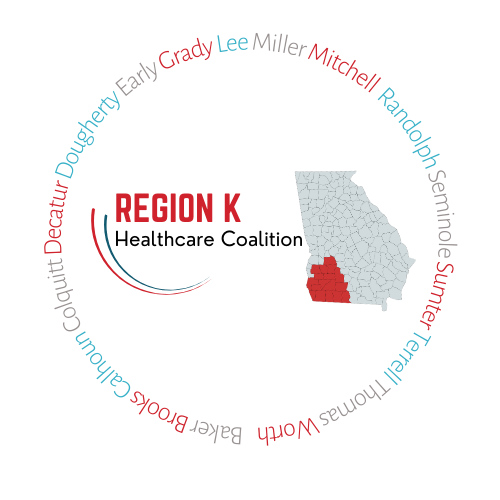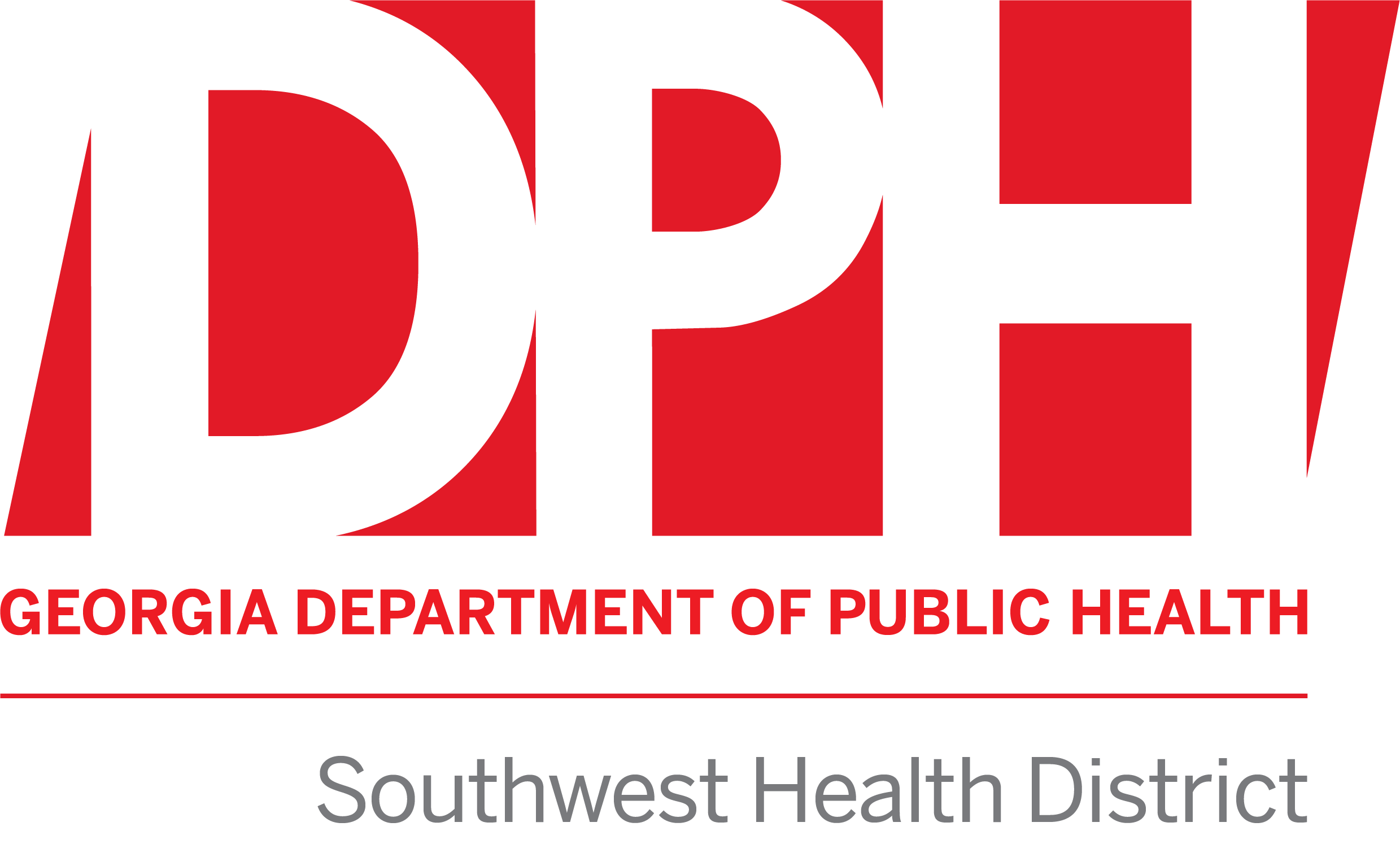Region K includes Baker, Brooks, Calhoun, Colquitt, Decatur, Dougherty, Early, Grady, Lee, Miller, Mitchell, Randolph, Seminole, Sumter, Terrell, Thomas, and Worth counties.
Region K Healthcare Coalition works together to respond to emergencies by promoting intra-regional cooperation, sharing of resources, planning, and networking.

Organizations encouraged to participate include, but are not limited to:
- Hospitals
- Community Health Centers
- Emergency Management Agency (EMA)
- Emergency Medical Services (EMS)
- Nursing Homes
- Public Health
- Home Health
- Mental/Behavioral Health Providers
- Dialysis Centers
- Pharmacies
- Hospice Agencies
- Personal Care Homes and Assisted Living Facilities
Why is the Region K Healthcare Coalition important?
When a disaster hits a community or a region, the entire healthcare system will be impacted and will have to respond. All healthcare organizations, from the largest hospital to a small community health center, move together to effectively respond to the disaster and work towards recovery.
Planning together saves lives!
What are the benefits of membership in the Region K Healthcare Coalition?
As a member, your organization will build new and stronger relationships with other healthcare organizations and emergency management; learn about available resources in the community; have your concerns heard and addressed in the planning process; and have access to training and grant funding.
One objective of the Region K Healthcare Coalition is the development of a coordinated emergency response plan. By planning collaboratively, all members of the coalition are strengthened and better prepared. Your organization will learn from the experiences of others. By participating in the coalition, your organization may be able to meet some of your requirements related to emergency plans and exercises.
How can my organization join the Region K Healthcare Preparedness Coalition?
All healthcare and emergency response organizations in Region K are invited to join the coalition. Members regularly attend meetings, participate in planning, and agree to work with and support other members during disaster response and recovery.
For more information, contact:
Julie Miller
Emergency Preparedness
Coordinator
Phoebe Health Systems
- 229-344-4282
- jlmiller@phoebehealth.com
Danyelle Oates
Healthcare Facilitator
Office of All Hazards Preparedness
DPH Southwest Health District, 8-2
- 229-518-6616 ext 6722
- danyelle.oates1@dph.ga.gov
Sonja “Marie” Moody
Emergency Preparedness Director
Office of All Hazards Preparedness
DPH Southwest Health District, 8-2
- 229-518-6616
- sonja.moody@dph.ga.gov
Links for more Information:
- Healthcare Preparedness Capabilities – National Guidance for Healthcare System Preparedness, November 2016
Public Health Emergencies:
- Dial 1-866-PUB-HLTH anytime, 24/7.
